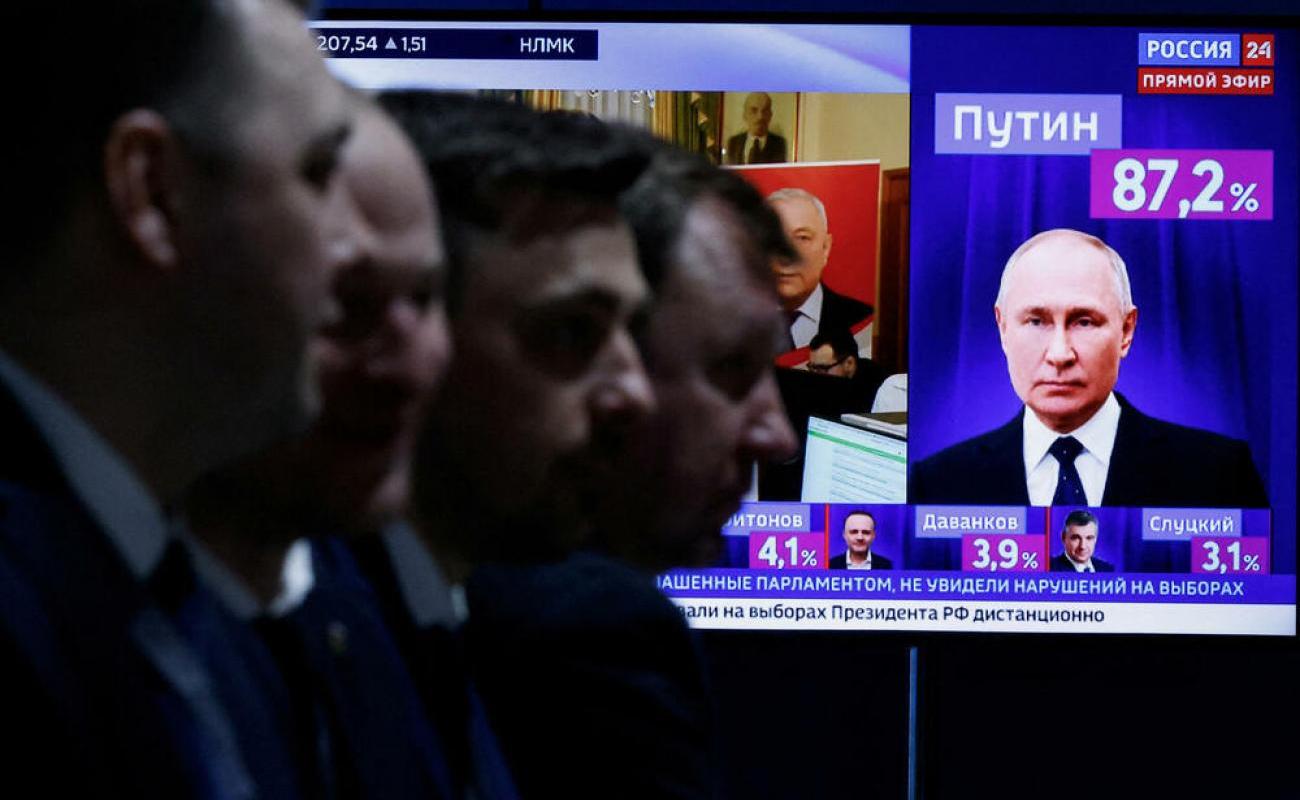Putin's fifth term
How is it that large "national losses", both human and economic, do not affect the support of one government concentrated in the hands of the leader and his entourage? Has the fear of the "external enemy" really penetrated so much into a society that lives in one of the most powerful countries in the world?

Even when it was announced in Moscow, on the eve of the presidential elections, that polls allegedly pointed to the conclusion that Vladimir Putin would win around 82 percent of the votes in those elections, and that more than 70 percent of voters with the right to vote would go to the polls, and such (after the annexation Crimea and Donbass) has more than 112 million - it was clear that "Russian democracy" plans to advance. Namely, according to the first results, Putin has now won close to 88 percent of voter support, and the turnout was over 74 percent. In the previous elections, in 2018, Putin won 76,7 percent of the vote, and less than 70 percent of voters went to the polls. After this election victory and previous amendments to the Constitution of the Russian Federation, the seventy-one-year-old president will be able, if luck and health serve him, to run for the highest state office twice more - which theoretically means that he will be able to rule Russia longer than Stalin and Catherine the Great ( who ruled for 30 years each).
Vladimir Putin himself, after three days of voting (March 15-17), declared the election victory "in the company of young people and students". His three "opponents" during the "pre-election activities" expressed their support for Putin more than they sought a mandate for themselves. The main topic of those pre-election speeches by Putin was not Russia's ongoing two-year war in Ukraine, but mostly about the future generous social policy, lower taxation of families, the fight against poverty, etc. The fact that 40 percent of the Russian budget today goes to armaments and to the support of the military complex as a whole was not mentioned much, and foreign policy issues were reduced to the confrontation with the NATO alliance and the world's need to develop multipolarity in the world order (ergo, to abolish the American monopoly in world politics). In this regard, it should be noted that Chinese President Xi was among the first to congratulate Putin on his election victory. When Serbian President Vučić will do it - we will see.
Why am I mentioning the now well-known facts about these presidential elections in Russia, which have already been greeted with great understanding among government observers and their supporters, because allegedly Russian democracy should not be confused with Western European democracy? Due to the fact that on this occasion, every experienced person may have a number of questions. What kind of democracy is it when elections only demonstrate "national unity", which is actually a crazy and impossible phantasm in any nation? Are the mere interests of the rich and the poor, those in the center of the state and those on its outskirts, those whose employer is the state and those who have to navigate the labor market on their own; those who die on the battlefield and those who wise up in offices and private mansions, those who are educated and those who are not, etc., are not so different that each of these groups in each society does not seek more influence on the common government? How is it that large "national losses", both human and economic, do not affect the support of one government concentrated in the hands of the leader and his entourage? Has the fear of an "external enemy" really penetrated so much into a society that lives in one of the most powerful countries in the world, that the one who supposedly protects that society from occupation or foreign domination has so much political success? I could list here a thousand more similar questions, which I am not "own" to answer, as a stranger to other people's "sovereignty and integrity".
When it comes to a more down-to-earth question: how Serbian Russophiles will interpret Putin's victory in the elections and his regime, I must firmly say that I do not believe that they will waver and that they will at least ask themselves the above-mentioned questions, and above all - whether Serbia needs the Russian system and is it possible that our president Aleksandar Vučić wants to achieve "universal support" in Putin's way?
